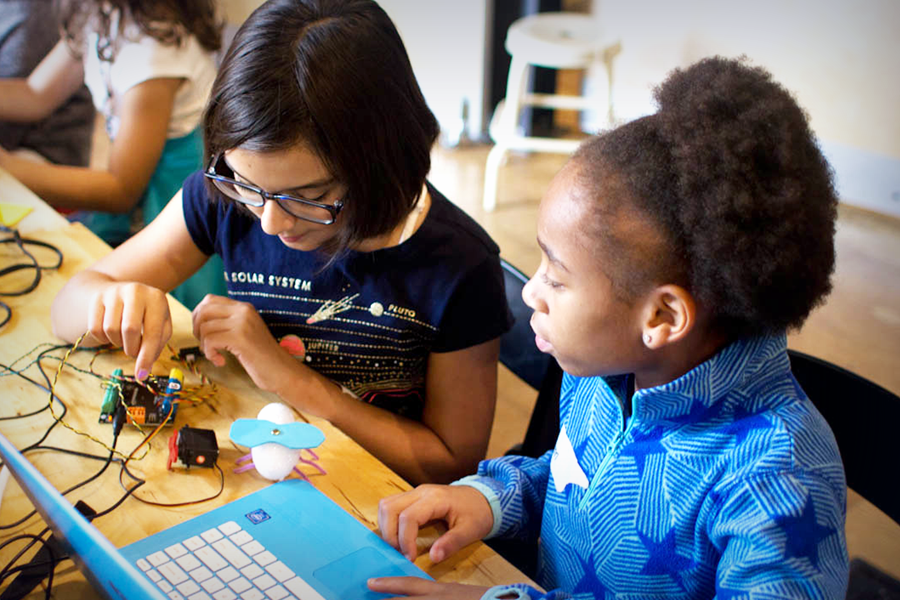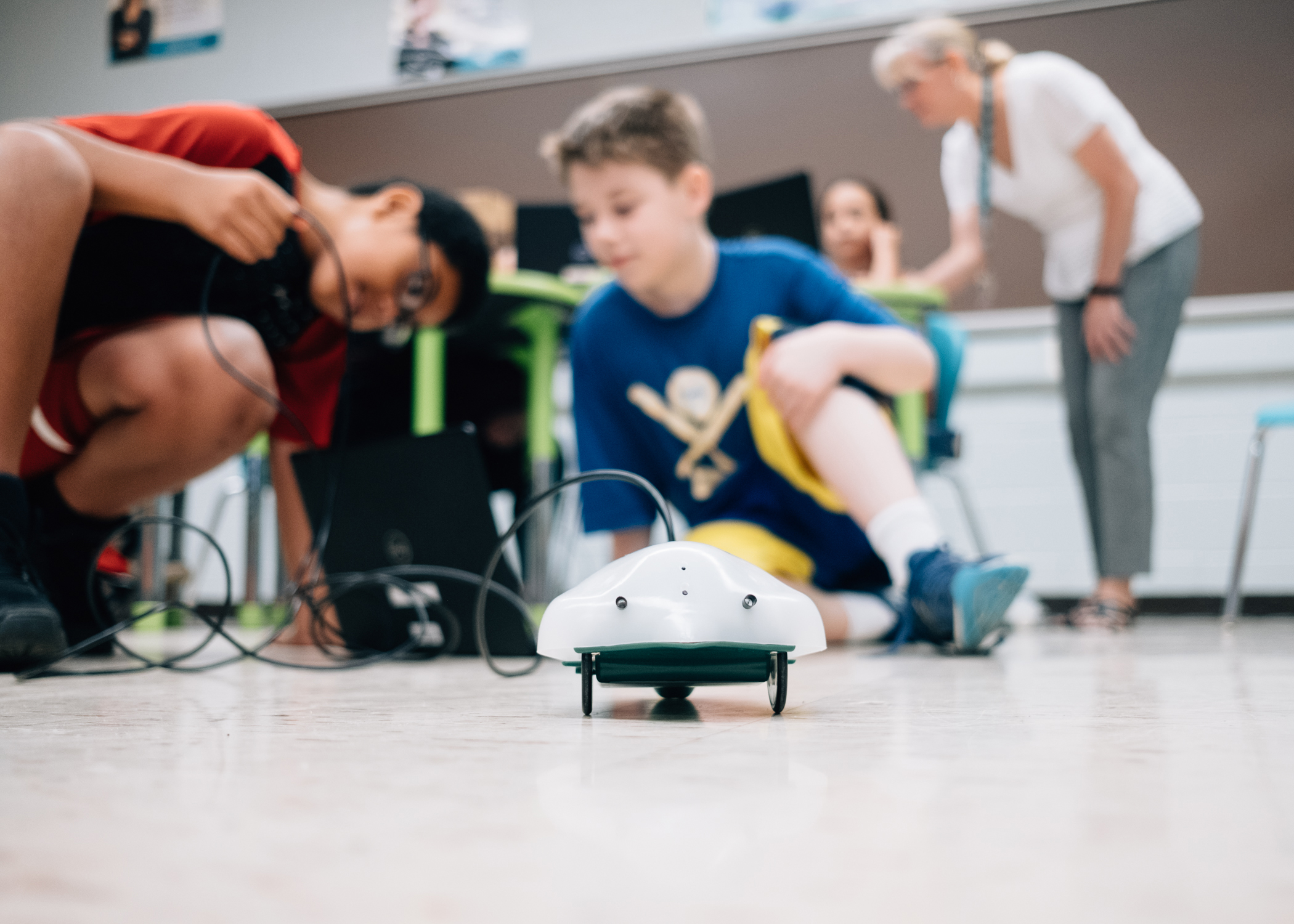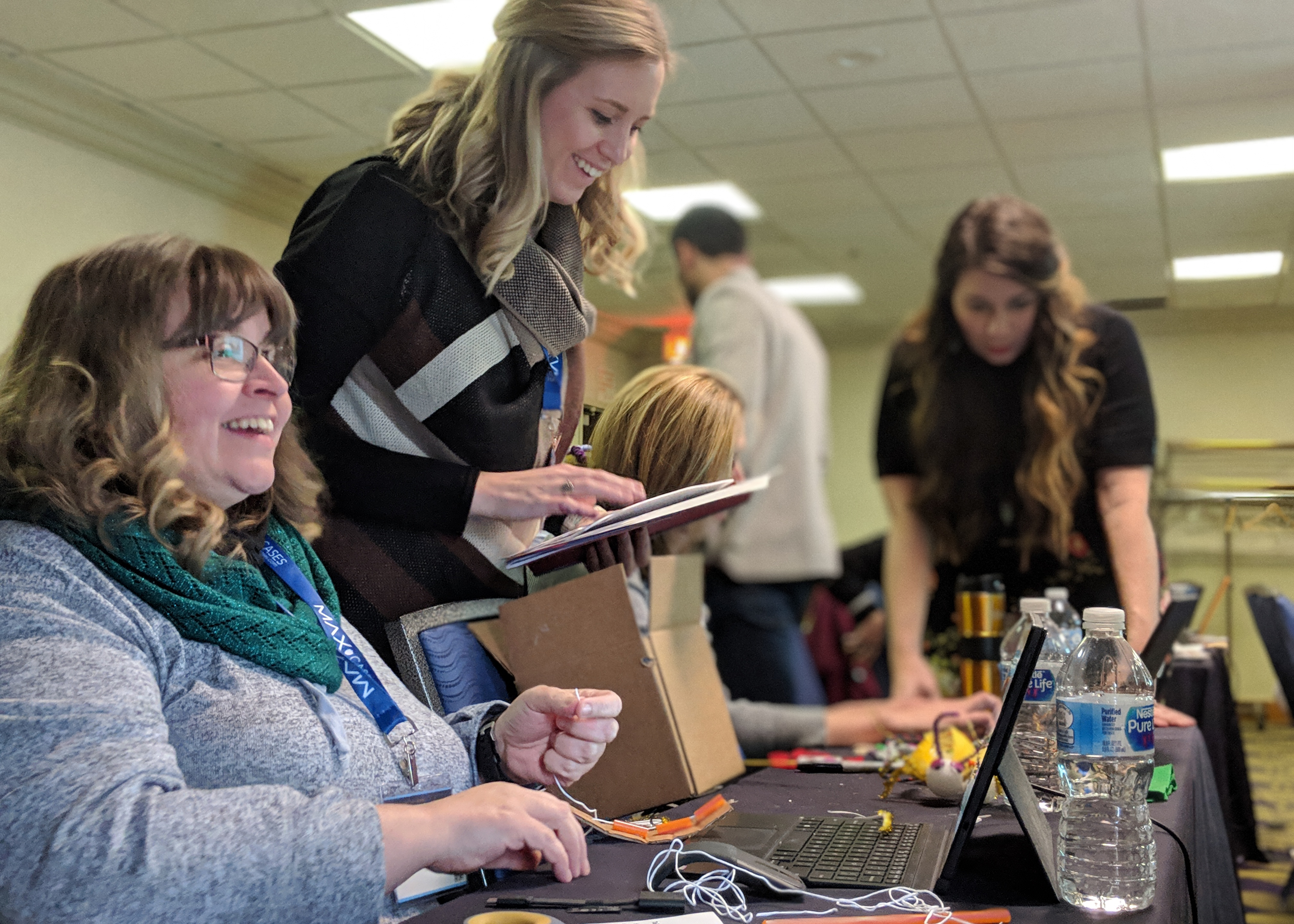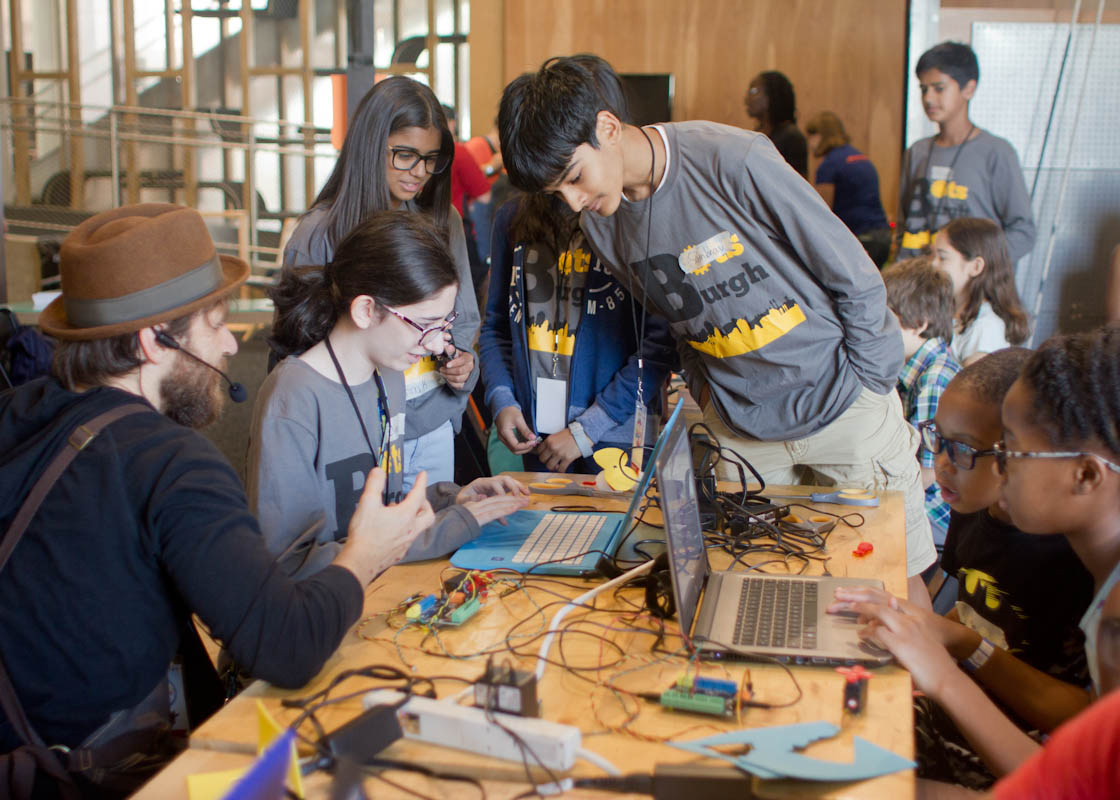
Cultivating Creativity – Live and Online
When COVID-19 shifted education online, alumnus Tom Lauwers responded by creating a solution for the good of all
By Amanda S.F. Hartle
Around the world, 9 out of every 10 children are out of school due to the COVID-19 pandemic — leaving parents and educators scrambling to transform face-to-face interactions to online learning via screens and keyboards.
Carnegie Mellon University alumnus Tom Lauwers (E 2003, CS 2006, 2010) saw the unprecedented challenge and spurred his company Birdbrain Technologies to action.
Working at breakneck pace, the edtech company — focused on computer science and robotics learning for all K-12 students — created and posted a trove of free tutorials, courses, remotely programmable robots and a schedule of live, online classes.
“We responded to school closures with creativity and energy to help parents, students and teachers do creative robotics at home,” Tom says.
Some of the resources utilize Birdbrain’s Hummingbird Robotics Kit and Finch Robot, but plenty of no-technology required projects like building cardboard mechanisms are available, too.


CREATE-ing an Impact
Since 2010, armed with CMU undergraduate degrees in electrical and computer engineering and engineering and public policy, as well as master’s and doctoral degrees in robotics, Tom has lead a team of roboticists and educators who strive to cultivate creativity and computational thinking in elementary and secondary students with their interactive products.
“These skills are critical to succeeding in our society, and they’ve traditionally been under-emphasized in schools,” Tom says. “I am not trying to turn everyone into a roboticist or a software developer, but I think team-based creative problem solving, engineering design and interdisciplinary thinking are vital for all students.”
Both Finch and Hummingbird were initially developed at CMU in the Community Robotics, Education and Technology Empowerment (CREATE) Lab. The two-wheeled Finch robot supports various programming languages to provide tangible representations of code entered by students via tablets or computers. Hummingbird kits contain lights, sensors and motors that allow robotics beginners to learn quickly, while also providing limitless advanced engineering and programming tasks.
Birdbrain also supplies teachers with in-person and online professional development workshops as well as lessons and activities for their classrooms.
By inspiring students to use computer science and coding in unexpected ways like robot poetry, pinball machines or moving masterpieces, he hopes to see K-12 education take the same route as his CMU education — less siloes and more collaborations across departments.
“I want students to feel empowered to believe that they can create with technology and be more than consumers of digital media,” Tom says. “I want them to be inspired by some aspect of working on a Hummingbird project or writing a Finch program that intrinsically motivates them to learn more.”


The CMU Effect
Tom credits his motivation and success to his Tartan connections, which were integral to starting and building his company —a vast alumni network filled with leaders of successful spin-offs, the CREATE Lab, the Center for Technology Transfer and Enterprise Creation and invaluable advice from world-renowned faculty and staff.
“CMU led me to focus on how to make the largest social impact with my education … and provided Birdbrain Technologies with the advantages that every startup needs to survive and thrive,” Tom explains.
“The work I did at the CREATE Lab can be credited with reaching many hundreds of thousands of kids. We were able to have a direct impact on all of these kids because of CMU’s culture.”
